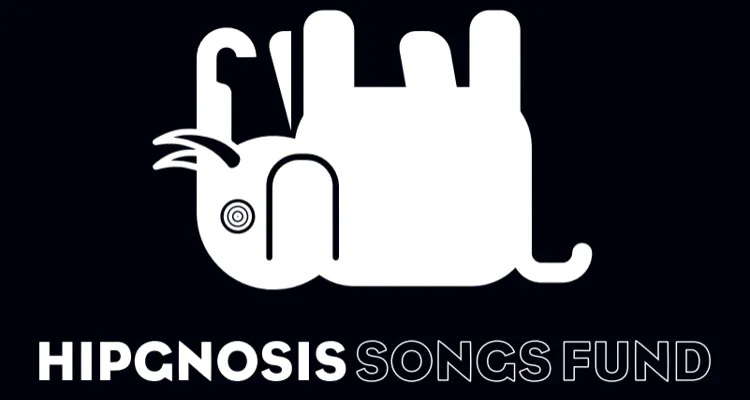Photo Credit: Hipgnosis Songs Fund
Hipgnosis Songs Fund (HSF), the publicly traded entity that’s spent billions on music IP, hasn’t materially lowered its catalog valuation despite suffering a stock-price decline throughout the past 12 months.
The cumulative worth of Hipgnosis Songs Fund’s holdings (as well as several other interesting figures) came to light in the company’s newly released performance breakdown for the six months ending on September 30th, 2022. For reference, HSF (not to be confused with its Blackstone-powered “investment adviser,” Hipgnosis Song Management) has for some time paused new catalog acquisitions owing to its maxed-out net debt of nearly $600 million.
Reports in September claimed that the Fund’s main catalog appraiser, Massarsky Consulting/Citrin Cooperman, had “resisted” calculating for rising interest rates when identifying the value of the rights at hand. Factoring for rising rates, the Financial Times indicated, would significantly reduce the price of the IP in question, “potentially wreaking havoc for investors who have used debt towards the purchases.”
(The Financial Times has to this point in 2022 published multiple seemingly critical pieces about Hipgnosis, which somewhat curiously included in the earnings report and presentation a screenshot of an FT article about Neil Young.)
The aforementioned Hipgnosis Songs Fund stock price (about 82 pence per share at the time of writing, down from £1.28 in December of 2021) is preventing the issuance of new shares and reflects a market cap of £967.37 million. Though HSF is of course buying back stock, certain financial professionals have highlighted the possibility that Blackstone or another player could scoop up shares en masse and assume ownership of the involved works at a discount.
And according to the net-asset valuation pinpointed in Hipgnosis’ latest earnings report, $2.22 billion, this discount would be significant.
Hipgnosis specifically disclosed an “independent valuation” that’s “determined by the Board, incorporating estimate of Fair Value provided by Citrin Cooperman.” In the category, the document shows an “operative NAV” of $2.218 billion (the company began reporting in USD some time back and receives nearly 90 percent of its receipts in dollars) as of September 30th, down only slightly from $2.240 billion as of March 31st of 2022.
Meanwhile, Citrin Cooperman attached an “aggregate fair value” of $2.672 billion (down from $2.69 billion as of March) to HSF’s 146 catalogs, which encompass 65,413 songs and are said to include 24 percent of the tracks in Spotify’s “Billions Club.” This price is “supported by recent market transactions,” the earnings report claims in all caps when charting the company’s discount-rate approach, and Citrin Cooperman higher-ups “take [a] long term view on interest rates.”
Elsewhere in the more than 40-page report, Hipgnosis said that its gross revenue had come in at $91.7 million between April’s start and September’s end, up about eight percent from $85.3 million during the same stretch in 2021. Net revenue, for its part, climbed by almost six percent to $78.4 million in the newer of the periods, the resource shows.
However, the figures “reflect monies due from [the] recent CRB III ruling,” including $16.1 million in retroactive payments and $3.1 million from “the higher rate earned during the period.”
Lastly, between January and June of this year, Hipgnosis is said to have recorded revenue jumps in categories including streaming ($23.56 million total, up 15.8 percent YoY) and sync ($9.78 million, up 32 percent YoY), with YoY slips in income from recordings, downloads, and public performances.

